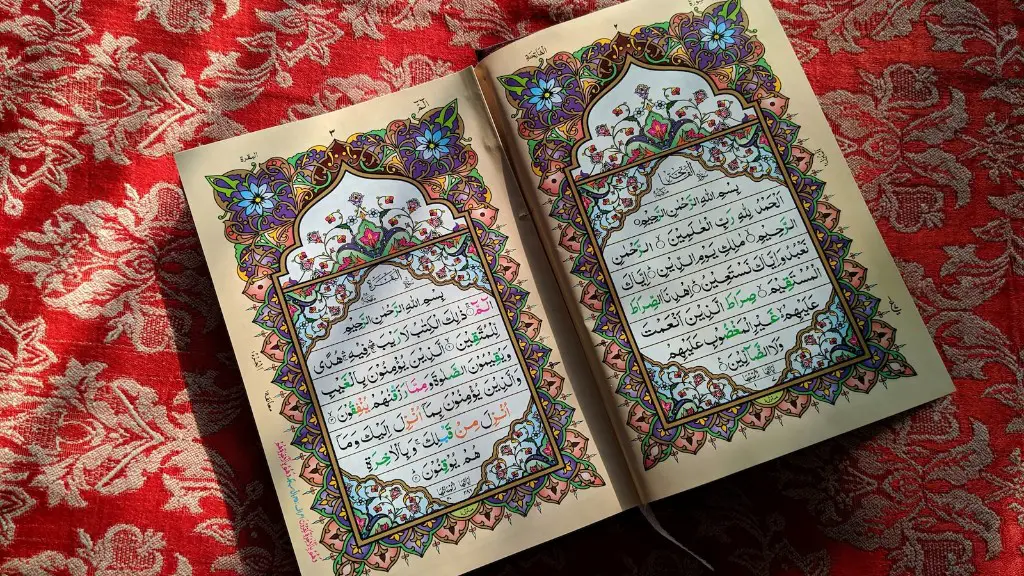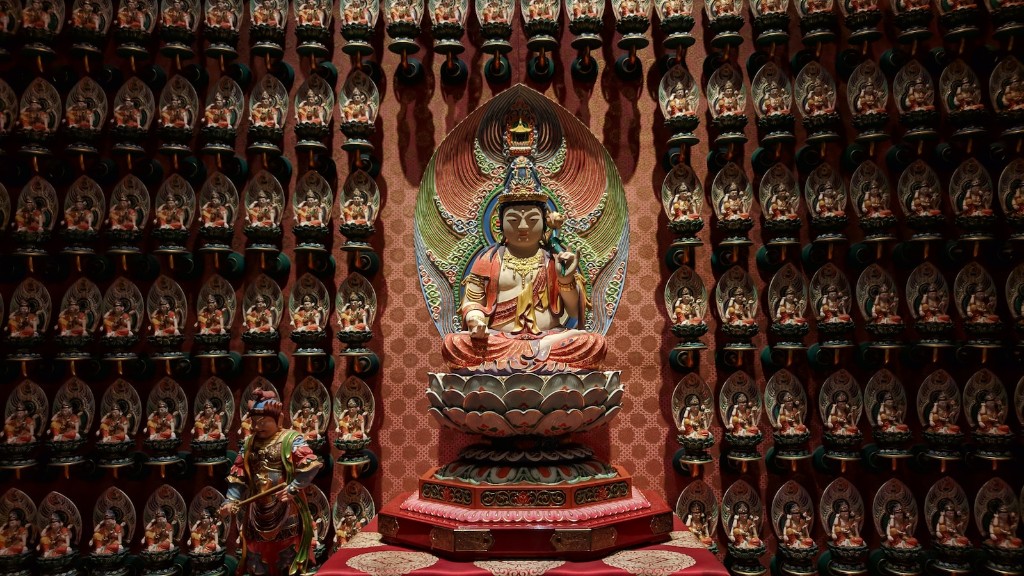There is much discussion in Islam about what exactly knowledge is. At its heart, knowledge is seen as a gift from God that allows humans to understand and live in accordance with His will. Many Muslims believe that knowledge is not simply acquiring information, but is an ongoing process of understanding and insight that leads to wisdom and a deeper relationship with God.
In Islam, knowledge is seen as a means to help individuals grow closer to Allah and to live in accordance with His will. Acquiring knowledge is seen as a sacred duty for Muslims, and there are many Islamic schools and educational institutions dedicated to teaching students about the Quran, the Hadith, and other aspects of their faith. Muslims believe that knowledge is a gift from Allah that should be used to improve one’s self and the world around them, and that everyone has a responsibility to seek out knowledge and to share it with others.
What does Quran say about knowledge?
Knowledge is a prerequisite for the creation of a just world in which authentic peace can prevail. This is according to Quranic perspective. The Quran says that God will exalt by (many) degrees those of you who have attained to faith…” (Surah 58: 11) This shows that knowledge is important to have in order to have a good standing in the eyes of God. Without knowledge, it would be difficult to create a just world or achieve peace.
It is very important to gain knowledge for the sake of Allah Almighty and not for any worldly benefit. If we seek knowledge only for worldly benefit, we will never know the true fragrance of Paradise on the Day of Resurrection. Whoever is asked for knowledge and he conceals it, Allah will clothe him with a bridle of fire on the Day of Resurrection.
Why knowledge is important in Islamic life
Muslims should only seek knowledge that will bring him closer to Allah and increase him in faith and be of benefit to him in this world and in the hereafter. Muslims are forbidden to seek hidden knowledge because all things hidden are known to only Allah alone therefore the future is known to only Allah.
The Quran is very clear that knowledge is the most important thing in one’s life. There are two kinds of knowledge – religious and secular. Both are important for a human being. Secular knowledge is important for our day to day living, while religious knowledge is essential for our smooth life on earth and in the hereafter.
What is halal knowledge?
Halal knowledge is important for Muslims in order to follow the teachings of Islam regarding what is halal (permissible) and haram (forbidden). There are many sources of halal knowledge, including the Quran and the Hadith, as well as Islamic scholars and Imams. It is important for Muslims to seek out accurate and reliable sources of halal knowledge in order to make sure that they are following the correct Islamic teachings.
The very first verse in the Quran urges people to seek knowledge. This highlights the importance of reading and elevates the standing of knowledge. It is important to pursue knowledge in order to gain a better understanding of the world and our place in it.
How to acquire knowledge in Islam?
The quest for knowledge is a lifelong journey. It is one of the most important things we can do in our lifetimes. And, it is something that should be started early on.
There are a few key things that can help us on our journey to seek knowledge. First, we should make the intention to seek knowledge. Second, we should attend classes at a masjid or mosque. Third, we should listen attentively to the Jumu’ah khutbah. Fourth, we should take Arabic classes. Fifth, we should attend halaqahs. Sixth, we should attend seminars. Seventh, we should read the Qur’an. Eighth, we should study alongside a scholar, shaykh, or imam.
All of these things will help us on our journey to seek knowledge. They will set us on the right path and help us to achieve our goals.
Knowledge is power! It not only helps students to sharpen their thinking skills, but it also makes learning in general much easier. This is because knowledge is cumulative, meaning that each new piece of information builds upon the last. So, those who have a rich base of factual knowledge will find it much easier to learn more. In other words, the rich get richer!
What is the concept of knowledge
This definition of knowledge has led to its measurement by methods that rely solely on the correctness of answers. A correct or incorrect answer is interpreted to mean simply that a person knows or does not know something. However, this definition does not consider the justification of the belief, which is an important part of knowledge.
With the myriad challenges faced by Muslims in the modern world, it is essential that they integrate the two types of knowledge: rational sciences and religious values. Muslims must be able to critically engage with the world around them, using the tools of reason and logic, while also adhering to the teachings of Islam. Only by striking this balance will Muslims be able to thrive in the 21st century.
What are the sources of knowledge in Islam?
The Quran is the most important source of Islamic teachings and beliefs. Muslims believe that the Quran was revealed by God to the Prophet Muhammad. The Quran is divided into 114 chapters, and each chapter is divided into verses. The Hadith is a collection of the sayings, actions, and statements of the Prophet Muhammad. It is an important source of Islamic teachings and guidance.
The person performing the slaughter must be a Muslim who is mentally sound and knowledgeable of the Islamic slaughtering procedures. The animal to be slaughtered must be lawful according to Islamic law and should be alive or deemed to be alive at the time of slaughtering.
What is the highest form of knowledge according to the Quran
Revelation is an important concept in Islam, as it is the source of knowledge for Muslims. The Quran is seen as the highest source of knowledge and authority in Islam, and so revelation is seen as an important source of knowledge for Muslims. Revelation is God-given knowledge which Muslims believe is enshrined in the Quran. This makes revelation an important part of Islamic belief.
Knowledge is power. It helps us to convert our ideas into reality and also it helps us to reach the success that we desire in our life. Moreover, knowledge assists us to differentiate between what is right and what is wrong. It helps us to overcome our faults, weaknesses and dangerous situation in life.
What is an example of knowledge?
There are two types of knowledge – book knowledge and street knowledge. Book knowledge is knowing about something through reading or formal education, while street knowledge is knowing about something through personal experience.
For example, you can read a recipe to learn how to bake a rhubarb pie. However, if you’ve never baked one before, you might not know how to adjust the recipe if the pie burns in the oven. That’s where experience comes in – it gives you the knowledge you need to stop doing three things at once!
It’s important to know how to think critically and pay attention to our own thoughts in order to learn and grow. Without accurate knowledge, we run the risk of believing false information and failing in our endeavors. Knowing how to think and learn is one of the most important things we can do.
Final Words
Islamic teachings emphasize that knowledge is a tool that humans can use to draw closer to Allah. It is not simply an accumulation of facts, but rather a way of understanding and apply the world around us. Muslims believe that by seeking knowledge, we can better our lives and the lives of those around us.
In conclusion, knowledge in Islam is very important. It is essential to seek knowledge and understanding of the Quran and Hadith. It is also important to live a life that is in accordance with the Quran and Hadith.




